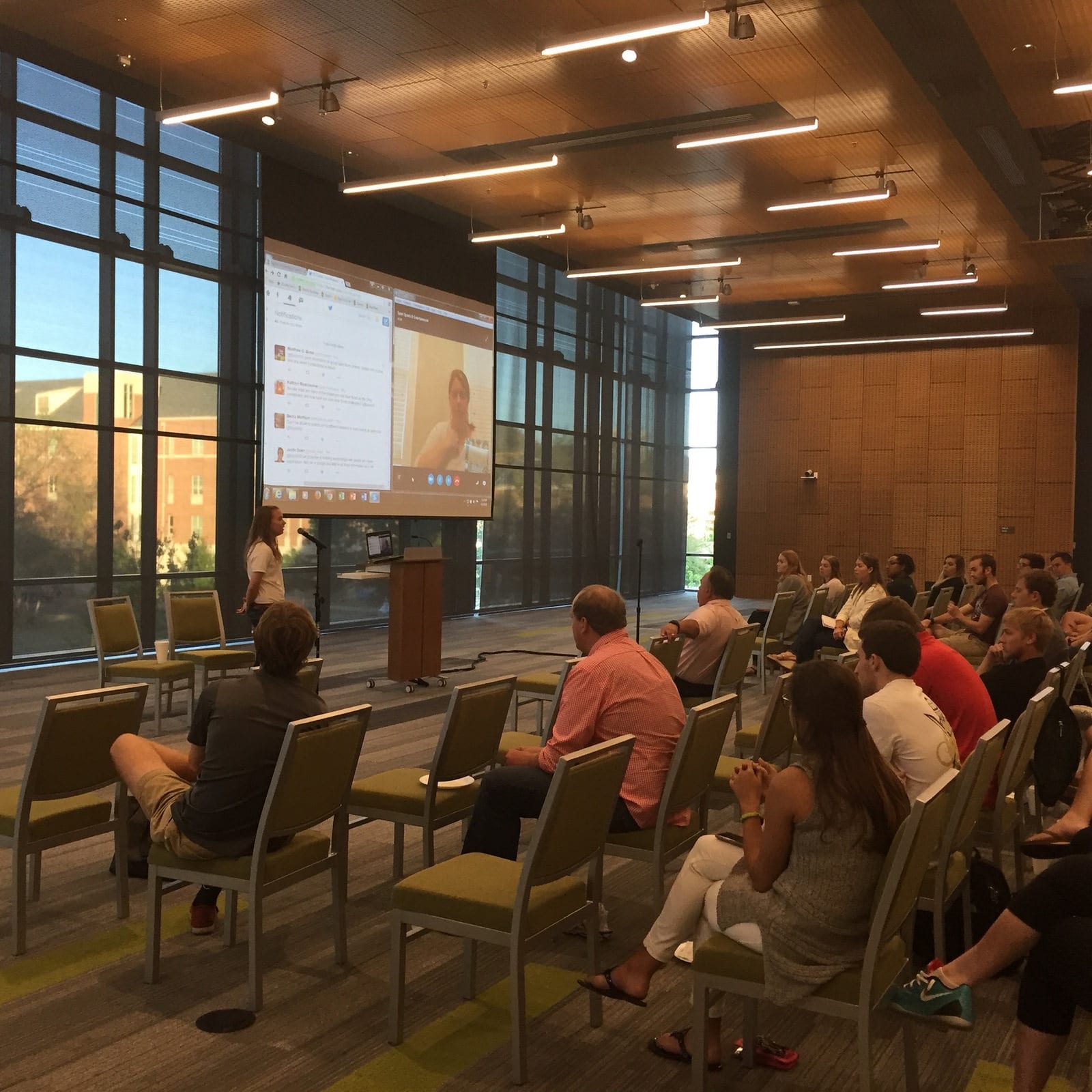by Kirk Wakefield – April 2016
April 2016 Newsletter
We have big plans for the 2016-17 academic year. Here’s some of what’s in store!
Friday, November 4, 2016
S3 Senior Pro Day
- Texas BBQ on Thursday Night: S3 Advisory Board members meet the students & network with managers the night before interviews.
- S3 Senior Interviews All-Day Friday: Managers meet each senior for 10 minutes in the morning, speed-dating style; then call back your top draft picks for afternoon interviews.
- Stay over for the TCU-BU game on Saturday, November 5, 2016.
- All S3 Advisory board teams and companies are invited to interview our 40 seniors for 2016-17! Board members should feel free to invite HR personnel to join us for the Senior Pro Day!
- Virtual interviews may also be set-up for those who cannot make the physical trip to Waco.
- Mark your calendars now. Official invites will arrive via email.
Tuesday & Wednesday, January 17 & 18, 2017
S3 Board Meeting
Based on insights provided by the S3 Executive Council and input from board members, we recognize that focusing on recruiting seniors in November and juniors in January better fits the schedules of many teams and companies. Hiring managers will get to meet every senior at the fall Pro Day and can still interview seniors at the January meetings. An additional benefit is that juniors will have a semester completed in the S3 program and be better prepared to meet board members and interview for internships.
Held right after Martin Luther King Day (1-16-17), the S3 Board meetings will include:
- Junior Internship Recruitment & Senior Follow-up Interviews:
- Phillips 66 Banquet & Corporate-Property Networking: Focused time to develop relationships with other S3 Board members.
- Mentorship Hour: Share career advice with your mentorship group of S3 students. Board members will have the opportunity to volunteer as mentors and role models as a way of giving back to students as they begin their careers.
- Ticket Insights: Roundtable discussion on pricing analytics presented by new S3 partners Eventellect & Stubhub.
- Campaign Management: Roundtable discussion on best practices in strategy. Stay tuned, board members, for the opportunity to submit your best campaign strategy to present at the meetings.
- S3 Brand-Building Brain & Barnstorming: Board members will discuss ways to strengthen and spread the good word about S3, as we continue to grow on a national and international basis.
We thank the S3 Board Members who recruit seniors for full-time positions and juniors for summer internships, as well as provide financial support for the program. We especially thank our anchor (1) corporate partners at Phillips 66, Eventellect, Schlotzsky’s, and La Quinta Inns & Suites, and (2) team partners at the Dallas Cowboys, Houston Texans and Dallas Mavericks. These organizations have gone above and beyond!
Welcome to New Board Members!
Dan Fleetwood, Vice President, Global Sponsorships, SAP
Patrick Ryan, Co-Founder of Eventellect
Geoff Lester, Head of Partnerships & Business Development, StubHub
Katie Scallan, Senior Manager, Engagement Marketing, Gulf States Toyota
Chris Talley, Vice President, Corporate Communications, USAA
Garrett Smith, Manager, National Soccer HOF Club Sales, FC Dallas
Doug McNamee, Senior Associate AD, Baylor
Katy Young, Director of Recruiting, Learfield
We also welcome, Christine Stoffel, CEO, SEAT Consortium, who will share some exciting news with us next month!
This month in the S3 Report we begin features on the culture, values and practices of some of our great team partners. This month, read about the San Antonio Spurs Sports & Entertainment:
- Floor or Front Office: It’s all the same at Spurs Sports & Entertainment
- How a team’s values can shape lives
- How the San Antonio Spurs grow good people
Cover Photo: April S3 Club Meeting with San Antonio Spurs Brooke Gaddie (S3 2014) and Lindsay Beale (S3 2010) sharing insights with S3 students.













 Haley is well-liked and highly respected by her colleagues at the Orlando Magic. She’s a passionate, collaborative leader that gets results. The Tourism Department continues to grow because she goes above and beyond for her clients. ~
Haley is well-liked and highly respected by her colleagues at the Orlando Magic. She’s a passionate, collaborative leader that gets results. The Tourism Department continues to grow because she goes above and beyond for her clients. ~ 


